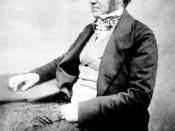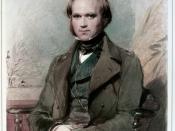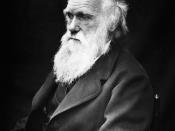When Charles Darwin introduced the theory of evolution, he probably never envisioned that his scientific theories would spawn groundbreaking social movements. However, after he suggested that nature influenced humans like all other living organisms, examining human society through a naturalistic perspective became the newly adopted trend amongst social scientists. Eugenics emerged during this period as a powerful social movement preoccupied with establishing a better stock of human race through applying social policies that would imitate natural selection. Eugenicists wanted to increase the reproductive output of individuals with desirable traits, while minimizing the number of offspring from individuals with undesirable traits. Various eugenicists utilized the Darwinian principles of variation, heredity, and struggle for existence to justify eugenics as a viable and beneficial social policy.
Eugenicists applied the Darwinian observation of variations amongst individual species as justification that some variations were more beneficial for society than others. In Eugenics Francis Galton wrote ÃÂman are quite as variable by nature as other animals of like speciesÃÂ (1).
In this statement, Galton made the logical extension that humans in a civilized society have varied characteristics just as animals in nature based on DarwinÃÂs observations. Consequently, the differences in variations implied that all humans were not equal in a naturalistic sense. According to Galton, some people were more suitable for certain jobs and people contribute to society in different ways due to natural variations in characteristics. In The Origins of Species Darwin defined the principle of natural selection as the ÃÂpreservation of favourable variations and the rejection of injurious variationsÃÂ (68). Therefore, variations in animals must be compatible with the natural conditions they live under, and the environment has an intrinsic preference for certain traits over others. For eugenicists, the civilized society was similar to nature as a selective environment. In Eugenics, Galton specified the...


